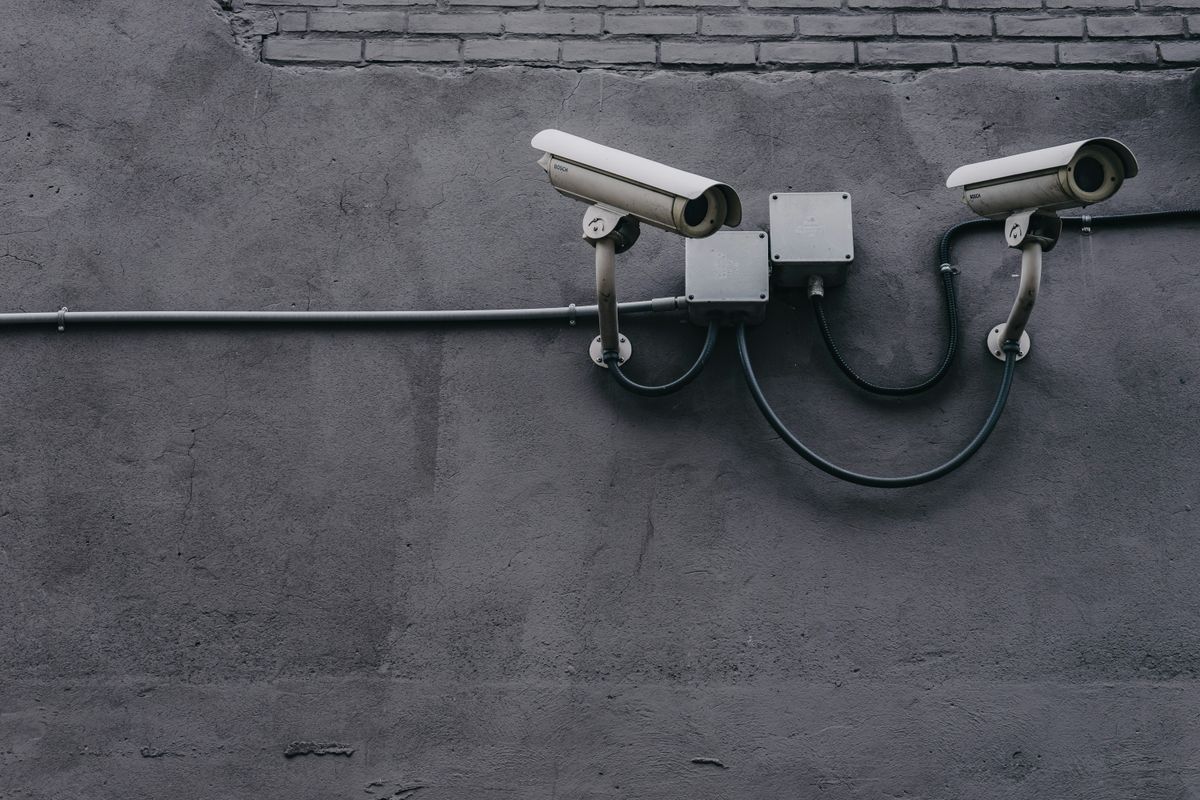In the ever-evolving world of cryptocurrencies, securing your digital assets has become paramount. With the rise of hacking incidents and theft, choosing the right crypto wallet is not just a matter of convenience but also a critical step in safeguarding your investments. This article will guide you through the different types of crypto wallets, the criteria for selecting the best one for your needs, the top crypto wallets of 2024, and advanced security measures to ensure the long-term safety of your cryptocurrency.
Key Takeaways
- Selecting the right crypto wallet hinges on understanding the trade-offs between hot and cold wallets, with hardware wallets offering the highest security for significant holdings.
- When choosing a wallet, compatibility with your cryptocurrencies, robust security features, ease of use, and portability are essential factors to consider.
- The top crypto wallets of 2024, including Trust Wallet and Exodus, provide a range of options for security, convenience, and accessibility to suit different user needs.
- Enhancing wallet security involves protecting against theft and fraud, mitigating human error, ensuring privacy, and conducting regular security audits and updates.
- For long-term crypto storage, hardware wallets, multi-signature wallets, and cold storage options are advanced measures that provide additional layers of security.
Understanding Different Types of Crypto Wallets

Hot Wallets vs. Cold Wallets
When diving into the world of cryptocurrency, understanding the distinction between hot and cold wallets is crucial for safeguarding your digital assets. Hot wallets are digital storage solutions that are always connected to the internet, providing easy access for frequent transactions. They are a popular choice for crypto owners due to their convenience, but this constant online presence makes them more vulnerable to cyber threats.
On the other hand, cold wallets are offline storage methods that offer enhanced security by keeping your private keys away from online vulnerabilities. These include hardware wallets, paper wallets, and certain offline software wallets. Ideal for long-term storage and for those holding substantial amounts of cryptocurrency, cold wallets are less convenient for regular transactions but significantly reduce the risk of hacking attacks.
Choosing between hot and cold wallets depends on your individual needs, such as the frequency of transactions, the amount of cryptocurrency you own, and your security concerns. Here’s a quick comparison to help you understand their differences:
- Hot Wallets: Always online, convenient for daily use, higher risk of cyber attacks.
- Cold Wallets: Offline storage, higher security, best for long-term holding.
The key to maximizing security and accessibility lies in finding the right balance between hot and cold wallet solutions, tailored to your crypto activities.
Hardware Wallets: The Ultimate Security
Hardware wallets, often referred to as physical crypto wallets, are the pinnacle of security for cryptocurrency enthusiasts. These devices store private keys offline, shielding them from online threats and unauthorized access. Unlike their software counterparts, hardware wallets are not constantly connected to the internet, thus they are less susceptible to hacking and cyber theft.
When it comes to managing your digital assets, hardware wallets offer a unique combination of security and control. They require physical interaction for transactions, which means that even if a hacker were to compromise your computer or mobile device, they would not be able to transfer funds without the hardware wallet itself.
The robust security protocols of hardware wallets make them an ideal choice for long-term storage of cryptocurrencies. By keeping your private keys in a physical form that’s only accessible when you choose to connect it, these wallets act as a personal vault for your digital wealth.
While hardware wallets are the gold standard for security, they can be less convenient for frequent traders or those needing regular access to their funds. For this reason, many users opt for a combination of wallet types, using hardware wallets for the bulk of their holdings and software wallets for day-to-day transactions.
Software Wallets: Convenience and Accessibility
Software wallets are the epitome of convenience in the cryptocurrency world, offering users the ability to manage their assets with ease. These wallets come in various forms, such as desktop applications for personal computers and mobile apps for smartphones or tablets. They are particularly suited for everyday transactions and those who need regular access to their cryptocurrencies.
While software wallets are more accessible, they do not offer the same level of security as hardware wallets. It’s crucial to understand the difference between custodial and self-custody software wallets. For instance, the Strike app is a custodial wallet, meaning it holds the private keys for you, while other apps may allow you to control your private keys directly.
As your cryptocurrency holdings increase, it’s wise to consider transitioning to more secure storage methods, such as hardware wallets, to safeguard your investment from online threats.
Here’s a quick comparison of software wallet features:
- Ease of use: User-friendly interfaces, often with companion apps.
- Accessibility: Instant access to funds for trading or transactions.
- Security: Generally less secure than hardware wallets; varies based on custodial vs. self-custody.
- Portability: Easily installed on various devices, enhancing mobility.
Paper Wallets: An Old-School Approach
Paper wallets, despite their simplicity, offer a high level of security for cryptocurrency storage due to their offline nature. They consist of a physical piece of paper containing both the public and private keys needed to conduct transactions. This method is particularly resistant to online hacking attempts but introduces risks such as physical damage or loss.
To create a paper wallet, one must generate and print the keys, often through a website like MyEtherWallet. It’s crucial to ensure the safety of the paper wallet by storing it in a secure location, free from environmental hazards. Here are some best practices for managing paper wallets:
- Generate the wallet using a trusted and secure service.
- Print using a safe printer not connected to a network.
- Store in a secure and environmentally stable location.
- Consider laminating the paper wallet to protect against physical damage.
While paper wallets are not as convenient for frequent transactions, they are an excellent choice for long-term storage of cryptocurrencies, especially for assets like Ethereum that you intend to hold onto.
Remember, the responsibility of safeguarding a paper wallet falls entirely on the owner. Regular checks should be made to ensure its integrity and to mitigate the risks of theft or loss.
Criteria for Choosing the Right Crypto Wallet

Assessing Compatibility with Your Cryptocurrencies
When selecting a crypto wallet, compatibility with your cryptocurrencies is paramount. A wallet that doesn’t support the range of currencies you own or intend to acquire can render your investments inaccessible or, at best, inconvenient to manage. Here are some tips to ensure compatibility:
- Verify that the wallet supports all the cryptocurrencies you currently own or plan to own.
- Check for updates on the wallet’s supported currencies, as this can change over time.
- Consider future-proofing your choice by opting for wallets that have a track record of adding new currencies.
It’s crucial to not only look at the present compatibility but also to consider the wallet’s adaptability to future market developments.
Remember, the right wallet for your needs should align with the variety of cryptocurrencies you’re invested in. This might mean choosing a wallet that offers support for a wide array of altcoins and tokens, especially if you’re diversifying your portfolio.
Evaluating Security Features and Protocols
When selecting a crypto wallet, the security features and protocols are paramount. The integrity of your private keys is the linchpin of wallet security, as they are the means by which you access and transfer your cryptocurrency holdings. Wallets like Trezor and Ledger have set high standards in the industry, with Trezor being lauded for its open-source platform, and Ledger providing assurances such as warranties and replacements.
- Trezor: Open-source; denies hacking claims
- Ledger: Offers warranty and replacement; supports multiple coins
Ensuring the privacy of your financial and personal information is a critical aspect of wallet security. Robust measures protect not only your funds but also maintain the trust and integrity of the entire cryptocurrency ecosystem.
The trends in cryptocurrency security suggest a shift towards comprehensive solutions that safeguard the broader ecosystem, not just the wallet itself. This includes enhanced recovery options and privacy features, which are becoming increasingly important as cryptocurrency usage grows.
User Experience: Finding an Intuitive Interface
When selecting a crypto wallet, the user experience (UX) is paramount. An intuitive interface can significantly reduce the learning curve and enhance the overall satisfaction with the wallet. A well-designed UX ensures that users can easily navigate through their wallet’s features, from executing transactions to reviewing their portfolio.
- Ease of use: Simple and clear layout.
- Accessibility: Features are easy to find and use.
- Speed: Quick response and transaction times.
- Help and support: Accessible customer service and tutorials.
The goal is to minimize frustration and maximize efficiency, allowing users to focus on their investment strategies rather than the complexities of the wallet software.
Remember, a wallet that may be intuitive for one user might not be for another. It’s essential to try out different wallets and find one that aligns with your personal preferences and level of expertise.
Portability and Access: On-the-Go Solutions
In the dynamic world of cryptocurrency, having the ability to manage your assets while on the move is crucial. Mobile and web wallets excel in providing this convenience, allowing for quick transactions and easy access across various devices. However, it’s important to balance portability with security.
When considering portability, think about how often you’ll transact and from which devices. A mobile wallet is ideal for those who prioritize access from their smartphone, while a web wallet caters to users who switch between multiple devices.
Here are some tips for choosing a wallet that meets your on-the-go needs:
- Compatibility: Ensure the wallet supports all the cryptocurrencies you own or plan to own.
- Security Features: Opt for wallets with strong security measures like secure chips, PIN codes, and biometric authentication.
- Ease of Use: A user-friendly interface is crucial, especially for those new to cryptocurrencies.
- Portability: For true mobility, look for wallets that are compact or offer Bluetooth connectivity for easy pairing with mobile devices.
Remember, the convenience of portability should not come at the expense of security. Always weigh the features of a wallet against your personal needs and the level of risk you’re willing to accept.
Top Crypto Wallets of 2024: A Comprehensive Review

Breaking Down the Best Hardware Wallets
In the quest for securing digital assets, hardware wallets stand out as the fortress of cryptocurrency safety. Hardware wallets provide unparalleled protection by keeping private keys offline, away from the reach of online threats. The Trezor Safe 3, highlighted as the ‘Overall Best Hardware Wallet’ for 2024, exemplifies this security-first approach.
When considering a hardware wallet, it’s essential to understand that they are not just about security; they also offer a balance between safety and practicality. While they may require physical interaction for transactions, this extra step is a small price to pay for the peace of mind they offer.
Hardware wallets are the gold standard for long-term crypto storage, ensuring that your investments remain secure even in the face of evolving online threats.
Here’s a quick comparison of the top contenders for the title of best hardware wallet:
- Trezor Safe 3: The latest innovation from a trusted name in crypto security.
- Ledger Nano X: A popular choice with Bluetooth connectivity for on-the-go use.
- KeepKey: A user-friendly option with a robust security protocol.
- BitBox02: A minimalist design with a focus on ease-of-use and security.
- Coldcard Mk4: Designed for the security purists, offering advanced features for seasoned users.
Exploring the Top Software Wallets for Everyday Use
Software wallets, as the name suggests, are applications that you can install on your devices, offering a blend of convenience and accessibility. Electrum has stood the test of time since 2011, maintaining its reputation as a reliable software wallet. Meanwhile, Sparrow caters to users seeking integration with popular hardware wallets, and the Coinbase wallet extends its support beyond Bitcoin to include other major blockchains like Ethereum and Solana.
When choosing a software wallet, it’s crucial to understand the distinction between custodial and self-custody options. Custodial wallets, such as the Strike app and Cash App, manage the private keys on your behalf, offering ease of use at the expense of full control.
For those prioritizing privacy, the Samourai wallet provides robust security features for Android users. It’s essential to align your choice with your specific needs, whether it’s for daily transactions or as part of a diversified wallet strategy for both hot and cold storage purposes.
Here’s a quick comparison of some top software wallets:
| Wallet Name | Platform | Privacy Features | Hardware Wallet Support |
|---|---|---|---|
| Electrum | Desktop | Moderate | Yes |
| Sparrow | Desktop | High | Yes |
| Coinbase | Mobile | Moderate | No |
| Samourai | Mobile | High | No |
Remember, no single wallet fits all; your choice should be informed by how you plan to use your cryptocurrencies and the level of security you require.
Mobile Wallets: Balancing Security and Mobility
In the dynamic world of cryptocurrency, mobile wallets have become a cornerstone for users seeking both security and convenience. Mobile wallets strike a delicate balance, offering the flexibility to manage assets on the move while incorporating various security measures to protect funds.
Ease of use is paramount for mobile wallets, as they are often the first point of entry for newcomers to the cryptocurrency space. A well-designed mobile wallet should offer a straightforward user experience, allowing for quick transactions and easy access to funds without sacrificing security.
The best mobile wallets of 2024 not only provide robust security features but also support a wide range of cryptocurrencies, catering to the diverse needs of users.
When selecting a mobile wallet, consider the following points:
- Compatibility: The wallet should support all the cryptocurrencies you intend to use.
- Security Features: Look for wallets with features like biometric authentication, multi-factor authentication, and secure backup options.
- Portability: A good mobile wallet should be easily accessible, with a focus on seamless integration across different mobile platforms.
- User Experience: The interface should be intuitive, facilitating a hassle-free interaction for all levels of users.
Emerging Wallet Technologies and Innovations
As the cryptocurrency landscape evolves, so do the technologies that safeguard our digital assets. The future of physical crypto wallets is not just about security, but also about enhancing the user experience. Innovations are rapidly emerging, with new wallets featuring advanced security protocols such as biometric authentication, which adds a layer of personal security, and multi-signature support, which requires multiple approvals for transactions, thereby reducing the risk of unauthorized access.
The integration of these wallets with emerging blockchain technologies signifies a pivotal move towards a more secure and user-friendly digital asset landscape.
Furthermore, the compatibility of these wallets is expanding to support a wider array of digital assets, catering to the diverse portfolio of modern investors. This is crucial as the website page covers various topics related to cryptocurrency, including wallet reviews and comparisons, providing detailed guides for users to make informed decisions.
Below are some tips for choosing the right wallet to meet your evolving needs:
- Compatibility: Ensure the wallet supports all the cryptocurrencies you own or plan to own.
- Security Features: Look for wallets with robust security measures like secure chips, PIN codes, and recovery phrases.
- Ease of Use: Consider the user interface and ease of setup, especially if you’re new to cryptocurrencies.
- Portability: If you plan to use your wallet on the go, look for compact designs or models with Bluetooth connectivity.
Enhancing Your Crypto Wallet Security

Protecting Against Theft and Fraud
Cryptocurrency wallets are a prime target for hackers and cybercriminals. Understanding and implementing wallet security measures is crucial to prevent unauthorized access and protect your assets. Be aware of crypto scams and use a secure wallet to mitigate risks.
- Two-factor authentication (2FA): Some wallets offer 2FA, where your wallet holds two of three keys, with the third held on a remote server.
- Review wallet transactions: Regularly monitor for suspicious transactions. Unfamiliar cryptocurrency transactions may indicate a compromised wallet.
The importance of understanding and implementing wallet security measures cannot be overstated. It’s essential to enable multi-factor authentication and avoid public Wi-Fi when managing your cryptocurrencies.
Physical crypto wallets incorporate various security measures such as PIN codes, secure chips, and recovery phrases. These features ensure that even if the physical device is compromised, your assets remain secure.
Safeguarding Against Human Error
Human error is a significant risk factor in the management of cryptocurrency wallets. Forgetting passwords or losing private keys can lead to irreversible losses. To combat this, it’s crucial to adopt a disciplined approach to security.
- Use complex, unique passwords for each wallet.
- Regularly update and back up wallet data.
- Employ password managers to store and encrypt passwords.
- Write down recovery phrases and store them in multiple secure locations.
It’s essential to keep recovery information away from cloud storage or email, as these can be compromised. Instead, opt for physical copies in secure locations that only you can access.
By following these steps, users can significantly reduce the chances of loss due to human error, ensuring that their digital assets remain secure.
Ensuring Privacy and Anonymity
In the realm of cryptocurrency, ensuring privacy and anonymity is as crucial as safeguarding the assets themselves. Cryptocurrency wallets contain sensitive personal and financial information, making robust security measures essential to protect the privacy of the wallet owner.
To maintain the confidentiality of transactions and wallet contents, users should consider the following steps:
- Evaluate the privacy features of the wallet, such as the implementation of zero-knowledge proofs or ring signatures.
- Avoid using cloud storage for backing up wallet credentials, as it may be vulnerable to unauthorized access.
- Store seed phrases and private keys in secure, offline environments to prevent exposure.
- Regularly update and verify security protocols to ensure ongoing protection against new threats.
The security of cryptocurrency wallets plays a pivotal role in sustaining trust within the cryptocurrency ecosystem. High-profile breaches can significantly undermine this trust, emphasizing the importance of privacy and anonymity measures.
By adhering to these practices, users can significantly reduce the risk of privacy breaches and maintain the integrity of their digital identities.
Regular Security Audits and Updates
Regular security audits and updates are critical to maintaining the integrity of your cryptocurrency wallet. These audits are comprehensive assessments of the security measures in place to protect your digital assets. They help identify weaknesses and vulnerabilities, ensuring that any potential entry points for hackers are promptly addressed.
It’s not just about finding flaws; it’s about continuously improving security to stay ahead of potential threats.
Staying informed about new releases and updates is essential, especially if you’re using a software wallet. For hardware wallet users, keeping an eye on both firmware and software updates is equally important. Remember, an outdated wallet can be a prime target for cybercriminals.
Here are some key steps to follow:
- Regularly check for updates from your wallet provider.
- Review wallet transactions for any suspicious activity.
- Enable automatic update checks where available, such as with Electrum.
- Stay informed about known bugs and vulnerabilities reported within the community.
Advanced Security Measures for Long-Term Crypto Storage

The Role of Hardware Wallets in Long-Term Security
For those invested in the long-term security of their cryptocurrency, hardware wallets provide an unparalleled level of protection. These devices ensure that private keys never come into contact with potentially compromised online environments. By storing private keys offline, hardware wallets act as a robust barrier against cyber threats, effectively immunizing your digital assets from online hacking attempts.
Hardware wallets are not just about security; they also enforce a discipline in crypto spending. The physical act of connecting the wallet to authorize transactions adds a thoughtful step that can prevent impulsive decisions.
While hardware wallets are the cornerstone of secure long-term crypto storage, their features and capabilities can vary. Below is a list of common attributes found in most hardware wallets:
- Immunity to online hacking
- Storage of private keys in a secure, offline environment
- Physical confirmation required for transactions
- Support for multiple cryptocurrencies
- Backup and recovery options
As the crypto landscape evolves, so too does the technology behind hardware wallets. Innovations are continuously being made to enhance security features, such as biometric authentication and multi-signature support, ensuring that hardware wallets remain at the forefront of secure crypto storage solutions.
Multi-Signature Wallets for Increased Protection
Multi-signature wallets add a significant layer of security for cryptocurrency users, especially for those who need to manage large sums or conduct transactions within an organization. By requiring multiple keys to authorize a transaction, these wallets ensure that no single person can access the funds without the necessary approvals, thus mitigating the risk of theft or unauthorized access.
When selecting a multi-signature wallet, it’s crucial to consider the number of signatures required and the parties involved in the signing process. Here’s a brief overview of how multi-signature wallets can be set up:
- 2-of-3: Requires two out of three possible signatures to complete a transaction.
- 3-of-5: Three out of five signatures are needed, offering higher security for larger organizations.
- Custom configurations: Some wallets allow for custom setups, tailoring the security to the specific needs of the user or group.
It is essential to have robust backup and recovery options in place. A well-thought-out backup strategy can prevent the loss of funds due to unforeseen circumstances, such as hardware failure or damage.
Always review transactions and implement additional security measures like two-factor authentication (2FA) when available. This not only adds another layer of security but also provides a way to monitor for any suspicious activity within your wallet.
Cold Storage Options: Beyond Hardware Wallets
While hardware wallets are lauded for their security, there are other forms of cold storage that offer robust protection for your cryptocurrency. Cold wallets are not just about hardware; they encompass a variety of offline storage methods. These alternatives are essential for those seeking to diversify their security measures and ensure their assets are safeguarded against all forms of digital threats.
For instance, paper wallets, though considered an old-school approach, remain a viable option. They consist of a physical copy of your public and private keys and can be stored securely in a safe or deposit box. Another form of cold storage is the use of offline software wallets, which can be stored on a USB drive or other forms of external media. These wallets are disconnected from the internet and, therefore, immune to online hacking attempts.
It’s crucial to understand that the level of security provided by cold storage options correlates directly with the measures taken to protect the physical medium itself. Whether it’s a paper wallet or an offline software wallet, the physical security of the storage device is paramount.
When considering cold storage, it’s important to evaluate the trade-offs between security and accessibility. While these methods provide a high level of security, they may not be as convenient for frequent transactions. However, for long-term storage of significant cryptocurrency holdings, the peace of mind they offer is invaluable.
Incorporating Decentralized Security Practices
In the evolving landscape of cryptocurrency, decentralized security practices are becoming increasingly vital. These practices distribute the responsibility of security across multiple parties, reducing the risk of centralized points of failure.
- Multi-party computation (MPC) allows for the creation and signing of transactions without exposing private keys to a single entity.
- Decentralized identifiers (DIDs) enable users to prove ownership without relying on a central authority.
- Smart contract-based recovery protocols can provide automated backup and restoration mechanisms.
Embracing decentralized security practices not only enhances the robustness of your crypto assets against attacks but also aligns with the foundational principles of blockchain technology—decentralization and trustlessness.
As the crypto ecosystem matures, integrating these practices into your security strategy can help in safeguarding your investments from the evolving threats in the digital landscape.
Conclusion
In the dynamic world of cryptocurrency, securing your digital assets is paramount. The choice of a crypto wallet is a critical decision that hinges on your security needs, technical expertise, and how you intend to use your cryptocurrencies. Whether you opt for the impenetrable fortification of a hardware wallet for long-term holdings or the convenience of a hot wallet for daily transactions, the key is to conduct thorough research and select a wallet that offers the right balance of security, compatibility, and ease of use. Remember, the best crypto wallet for you is the one that aligns with your individual needs while providing robust protection against theft, fraud, and human error. By carefully choosing and managing your crypto wallet, you can ensure the privacy and security of your digital wealth and contribute to the trustworthiness of the broader cryptocurrency ecosystem.
Frequently Asked Questions
What type of wallet should I choose for maximum security?
For maximum security, especially if you’re holding a significant amount of cryptocurrency, choose a cold wallet such as a hardware crypto wallet. These offer the highest protection against hacking attacks due to their offline nature.
What are the top 10 best crypto wallets in 2024?
The top 10 best crypto wallets in 2024 include a variety of hardware, software, and mobile wallets. Trust Wallet and Exodus are among the popular choices, each known for strong security features and support for multiple cryptocurrencies.
What should I consider when choosing a crypto wallet?
When choosing a crypto wallet, consider compatibility with your cryptocurrencies, security features like secure chips and recovery phrases, ease of use, and portability, especially if you need to access your wallet on the go.
How can I enhance the security of my crypto wallet?
Enhance your crypto wallet’s security by using complex passwords, regularly backing up private keys, and choosing wallets with robust security measures. Also, consider using hardware wallets for long-term storage of large amounts of cryptocurrency.
Why is the security of cryptocurrency wallets so important?
The security of cryptocurrency wallets is crucial to prevent unauthorized access and protect against theft, fraud, and human error. It also ensures privacy and helps maintain trust in the cryptocurrency ecosystem.
Are there any additional steps to secure a self-custody Bitcoin wallet?
For a self-custody Bitcoin wallet, additional security measures include using hardware wallets for long-term holdings, which are less convenient but offer superior protection, and being cautious before spending bitcoins.





